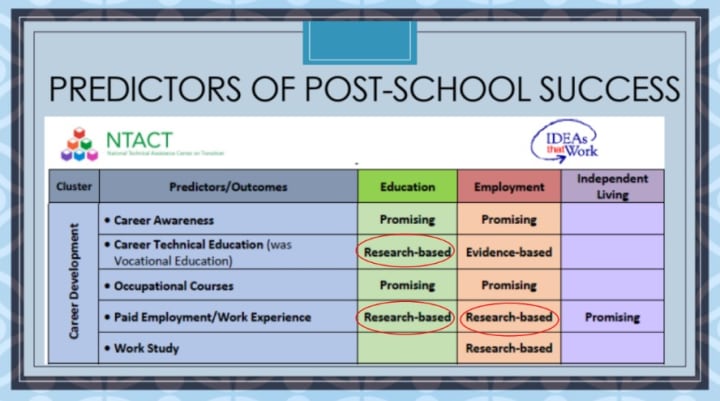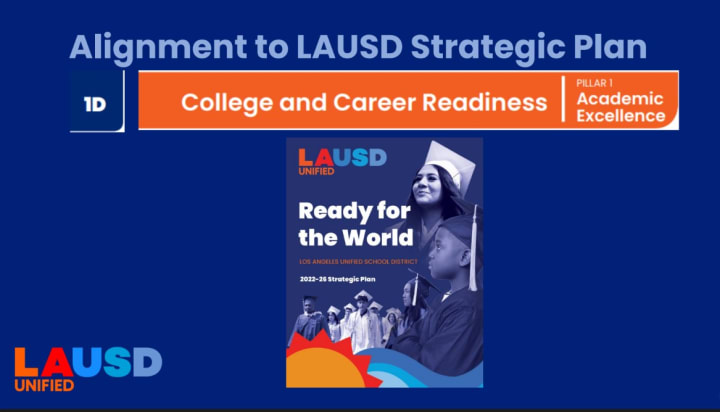Why Can’t The School District Get The Words Right?
As the LAUSD forces integration policies on families, it continues using language that is exclusionary to children with severe SpEd needs.
– Steven Aitchison
Words can be a powerful weapon:
I clearly remember when the Los Angeles Department of Water and Power embarked on a plan in the mid-1990s to replenish the aquifer underneath the San Fernando Valley. The start of this water recycling project was not a surprise to me as it was extensively covered by the Los Angeles Daily News. The coverage included not only maps of the areas that would be affected and timetables for construction but also an explanation of how the project would work including the steps that were taken to ensure that the water was safe for human consumption.
As the disruptive construction process came to an end the Daily News covered the project again. However, this time they reframed the “water recycling” as “toilet to tap.” They “went on to feature almost daily stories about the potential harm to people who drank the reclaimed water.” The resulting hysteria forced the DWP to end the project just eight months after turning it on, wasting much of the $55 million that had been spent.

During the past school year, I have thought often about the effect that words can have as I participated as a member of the Special Education Committee. Instead of using the committee as a way to advise the district on the implementation of policy, each of these bi-monthly meetings was driven by LAUSD bureaucrats explaining how services are delivered. Month after month I would explain how the words used ignored the needs of students with severe disabilities who needed something different than an education focused on academics, only to have the same exact messaging used at the following meeting. The last meeting of this committee was no different.
The presentation by the “District Office of Transition Services” went off track on the third slide in the presentation when it was mentioned that the work of this department aligned with the “College and Career Readiness” portion of the LAUSD’s “Ready for the World” Strategic Plan, most specifically “Academic Excellence.” More concerning was the fact that they considered Career Awareness, Career Technical Education, Occupational Courses, Paid Employment/Work Experience, and Work Study as predictors of post-school success. None of these applied to what my daughter needed from her LAUSD experience. Do these bureaucrats even think about children like her when they build these programs?
I expressed my concerns when it was my turn to speak after the presentation:
I have a concern when we place this under “academic excellence” that we are ignoring a segment of the population who isn’t going on to higher education or a job, because they don’t have the capabilities. Especially when we later talk about it as post-school success. Success can look different to different students. So I hope that we can keep that in mind in the future.

To the credit of the District staffer, she did respond that “success can be different to different people” and that the focus should be on them being “Ready For The World.” However, this is no different than any of the responses that I received at previous meetings only to have officials use the same type of language in the next one.
When the District’s most vulnerable students are cast aside in language that is used, it makes them easy to ignore when policies are set. Need space for a vanity middle school project? Give it the space being occupied by a Career Transition Center (CTC). Required to provide facilities to a charter school? Just move special education services to a spare closet. Running out of room for District staff? Place them in a Special Education Center campus regardless of how it disrupts the operations of this highly specialized school.
Families with children who have severe Special Education needs deserve to be recognized by the LAUSD and not locked in an adversarial relationship. A good start would be to stop using language that is exclusionary.
____________________________
Carl Petersen is a parent advocate for public education, particularly for students with special education needs. He was elected to the Northridge East Neighborhood Council and is the Education Chair. As a Green Party candidate in LAUSD’s District 2 School Board race, he was endorsed by Network for Public Education (NPE) Action. Dr. Diane Ravitch has called him “a valiant fighter for public schools in Los Angeles.” For links to his blogs, please visit www.ChangeTheLAUSD.com. Opinions are his own.
About the Creator
Carl J. Petersen
Carl Petersen is a parent advocate for students with SpEd needs and public education. As a Green Party candidate in LAUSD’s District 2 School Board race, he was endorsed by Network for Public Education (NPE) Action. Opinions are his own.






Comments
There are no comments for this story
Be the first to respond and start the conversation.